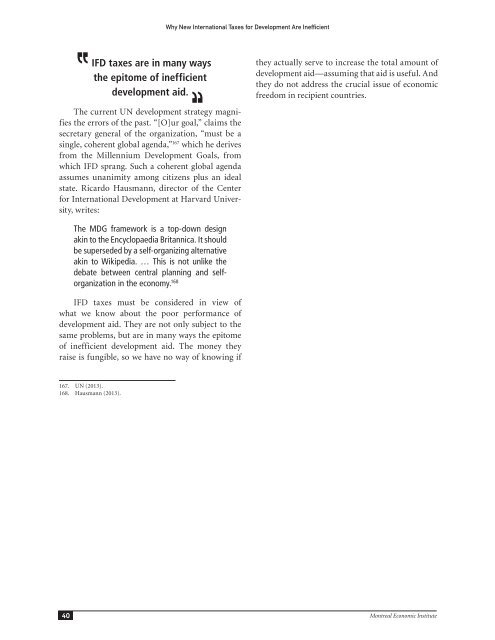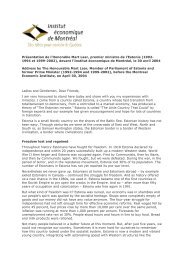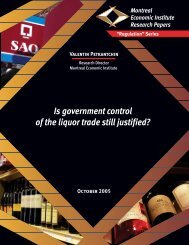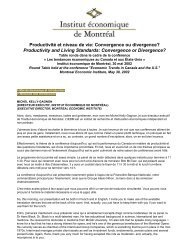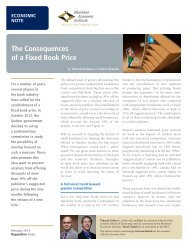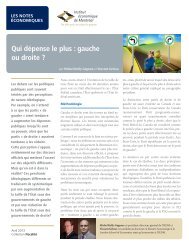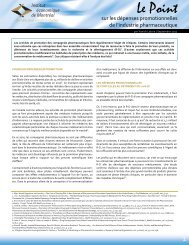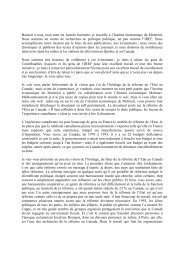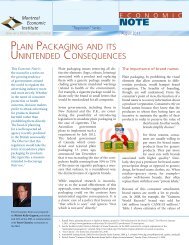Publication (PDF format) - Institut économique de Montréal
Publication (PDF format) - Institut économique de Montréal
Publication (PDF format) - Institut économique de Montréal
You also want an ePaper? Increase the reach of your titles
YUMPU automatically turns print PDFs into web optimized ePapers that Google loves.
,,IFD taxes are in many waysthe epitome of inefficient<strong>de</strong>velopment aid. ,,The current UN <strong>de</strong>velopment strategy magnifiesthe errors of the past. “[O]ur goal,” claims thesecretary general of the organization, “must be asingle, coherent global agenda,” 167 which he <strong>de</strong>rivesfrom the Millennium Development Goals, fromwhich IFD sprang. Such a coherent global agendaassumes unanimity among citizens plus an i<strong>de</strong>alstate. Ricardo Hausmann, director of the Centerfor International Development at Harvard University,writes:The MDG framework is a top-down <strong>de</strong>signakin to the Encyclopaedia Britannica. It shouldbe superse<strong>de</strong>d by a self-organizing alternativeakin to Wikipedia. … This is not unlike the<strong>de</strong>bate between central planning and selforganizationin the economy. 168IFD taxes must be consi<strong>de</strong>red in view ofwhat we know about the poor performance of<strong>de</strong>velopment aid. They are not only subject to thesame problems, but are in many ways the epitomeof inefficient <strong>de</strong>velopment aid. The money theyraise is fungible, so we have no way of knowing ifWhy New International Taxes for Development Are Inefficientthey actually serve to increase the total amount of<strong>de</strong>velopment aid—assuming that aid is useful. Andthey do not address the crucial issue of economicfreedom in recipient countries.167. UN (2013).168. Hausmann (2013).40Montreal Economic <strong>Institut</strong>e


